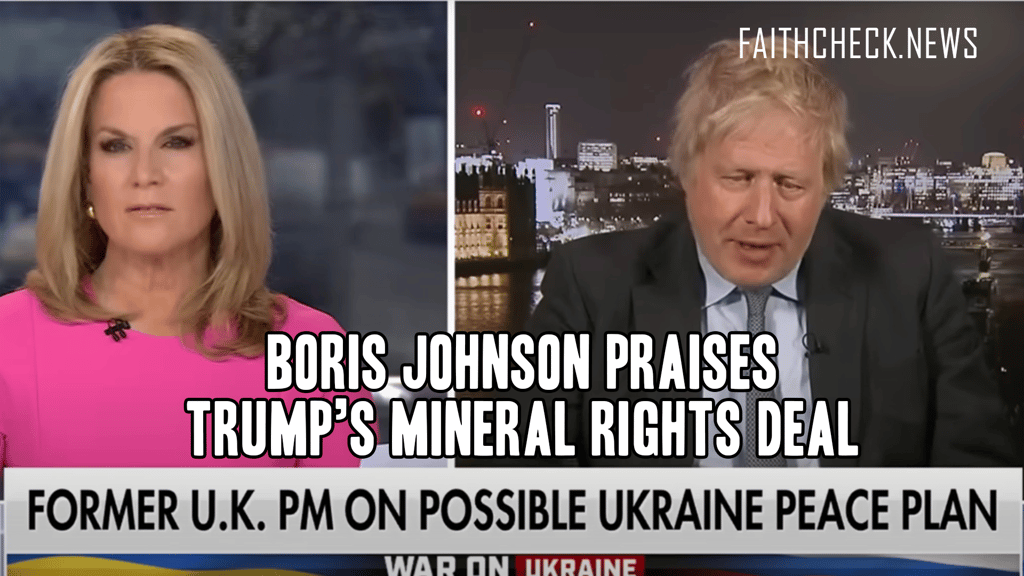Brits & French let Ukraine down. Boris Johnson Praises Trump Mineral Rights Deal
Former British Prime Minister says Ukraine invasion was the fault of Britain and France weak deterrence.
NEWS
2/26/20252 min read


Boris Johnson, Britain's former prime minister, admits the invasion of Ukraine is the fault of Britain and France (and President Bill Clinton) for not preventing it from happening.
Boris explained to Martha McCallum of Fox News that, "Because we are the two countries that let Ukraine down in 1994. We say to you could you give up nuclear weapons we will defend you and we didn't do that and shame on us."
On making Ukraine a NATO member. "It's too late for that now." Johnson said that would have made sense twenty years ago, but not today.
Boris went on to praise President Trump's potential mineral rights deal because it will benefit Ukraine and the United States and prevent a sort of "backstop" to further Russian invasion because now the U.S. has a vested interest in Ukraine.
The Big Takeaway
Leadership demands follow up. So much of today's leaders make promises, pose for the cameras, and then leave office before they can be held accountable. Russia's invasion of Ukraine begins with Russia. They are the aggressors, and Putin does want to resurrect the Soviet states of old. But Boris has confirmed that Trump inherited a problem because of the weak and ineffective deterrence of NATO.
So, while you hear the old guard of Washington, D.C. labeling Trump as an asset of Putin, remember, it was their leadership, their policies, and their weakness that empowered Putin to take nearly one-third of Ukraine.
A brief history lesson from Grok:
The Budapest Memorandum, signed on December 5, 1994, was an agreement involving the United States (under President Bill Clinton), the United Kingdom, Russia, and Ukraine, with France and China later providing similar assurances. In this deal, Ukraine agreed to give up its nuclear weapons, which it had inherited from the Soviet Union, making it the world's third-largest nuclear arsenal at the time. In return, the U.S., UK, and Russia promised to respect Ukraine's independence, sovereignty, and existing borders, and to refrain from using or threatening force against it. The agreement aimed to ensure Ukraine’s security while supporting global nuclear non-proliferation efforts. However, it offered "assurances" rather than binding "guarantees," meaning there was no legal obligation for military intervention if violated, as seen later with Russia’s actions in Crimea and eastern Ukraine.


Faith Check News
Curating daily news stories for Christian readers.
CONNECT OTHERS
© 2025. All rights reserved.
